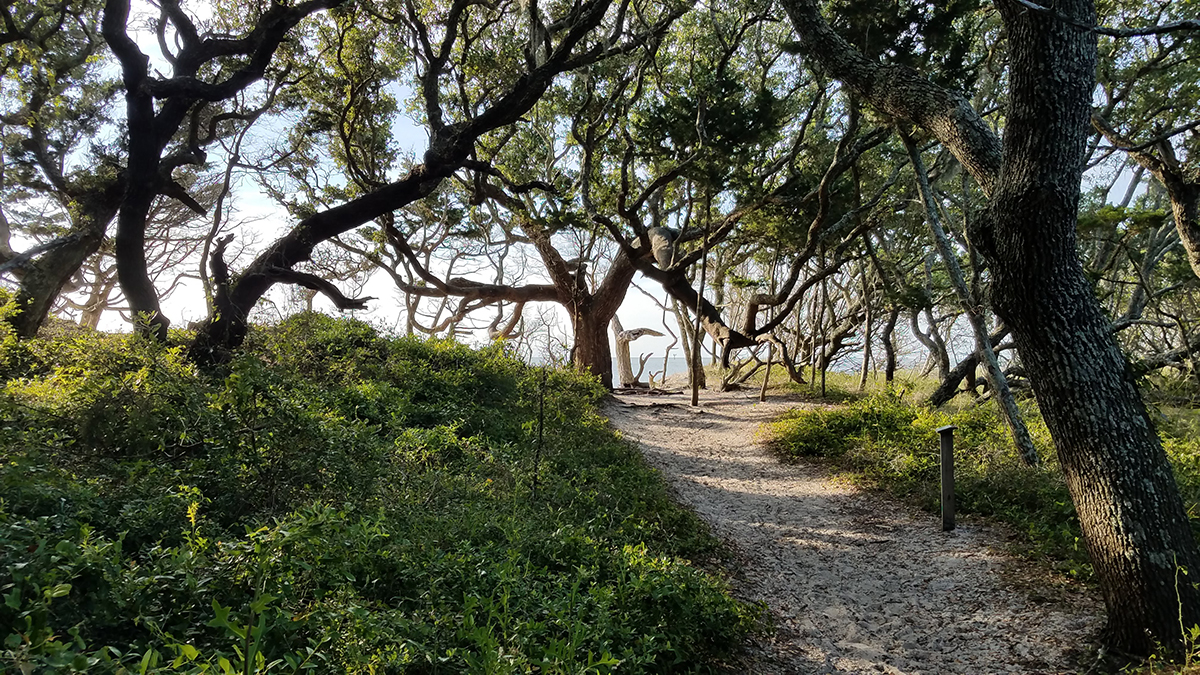
With the purchase of nearly 9 acres at the entrance of Springer’s Point Preserve on Ocracoke Island, the North Carolina Coastal Land Trust has put in place what officials call the “final puzzle piece” in protecting the preserve.
The recently expanded 132-acre Springer’s Point Preserve permanently protects important and declining habitats of maritime forest and maritime shrub communities, tidal red cedar forest, and estuarine marsh, enhances water quality and protects riparian buffers along the Pamlico Sound and Old Slough, and bolsters the overall ecological integrity and resilience of Springer’s Point Preserve, according to the organization.
Supporter Spotlight
“Springer’s Point is an ecological and cultural treasure of Ocracoke and North Carolina,” said Walker Golder, executive director of the Coastal Land Trust, said Monday in a statement. “This latest acquisition was essential to protect the overall integrity of the Preserve.”
The preserve, which overlooks Teach’s Hole, is said by local lore to be the lair of Edward Teach, better known as Blackbeard the pirate, and has been referred to as Teach’s Plantation.
“The expansion of Springer’s Point Preserve is about preserving and sharing an intimate, hidden part of what makes Ocracoke unique and magical,” said Lena Austin O’Neal, the Springer’s Point Preserve steward. “Being able to share the ecological gifts of our island and educating visitors about the importance of saving these special places is vital to a sustainable future for Ocracoke.”
The Coastal Land Trust first purchased 31 acres at Springer’s Point in 2002. An additional 91 acres was purchased in 2006 and the Coastal Land Trust officially opened the 122-acre Springer’s Point Preserve to the public. In May 2020, the Coastal Land Trust purchased two Pamlico soundfront tracts surrounded by the Preserve.
“With this latest purchase, the conservation of Springer’s Point, a long-time top priority for the Coastal Land Trust, is now complete,” said Golder.
Supporter Spotlight
Funding for the project was provided by a U.S. Fish and Wildlife Service North American Wetlands Conservation Act grant, a USFWS Coastal Wetlands grant, a North Carolina Land and Water Fund grant, an Ocracoke Occupancy Tax Board grant and generous private contributions.







